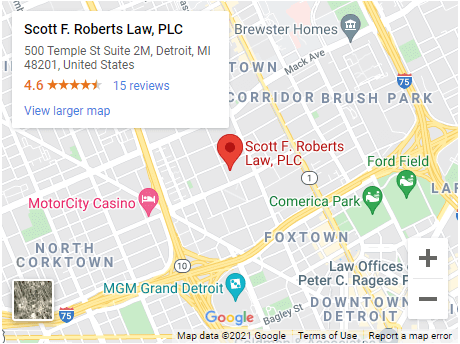By: Scott Roberts and Louis Madigson
Recently, the Michigan Legislature passed – and Governor Whitmer signed – farm bill legislation that categorizes all THC derivatives of the cannabis plant, including delta-8 tetrahydrocannabinol (THC), as marijuana, which are now regulated by the state’s Marijuana Regulatory Agency (MRA).
This move from the state has been a long time coming as leaving delta-8 unregulated allowed unlicensed businesses, such as gas stations or tobacco shops, to carry and sell delta-8 THC products. With the passage of this new act, the legislature legally recognizes and restricts delta-8 THC as well as all THC products derived from this specific cannabinoid. This farm bill legislation is the first step towards making delta-8 THC a safe and viable product alternative for Michigan consumers.
Delta-8 v. Delta-9 THC
Up until now, and technically until October 11, 2021, when the law goes into effect, the state of Michigan only recognizes and regulates delta-9 THC under MRA guidelines. Delta-9 THC is the more traditional THC compound sought after in the cannabis market and in an extraction process to create products. Concentrations of delta-9 are what MRA inspectors measure and aim to regulate for compliant production, transport, and sale, as it is the traditional psycho-activating agent of cannabis.
The differences between delta-8 and delta-9 THC do not go much further than their regulatory restrictions, as delta-8 THC is able to provide a similar psychoactive effect as delta-9. Lab technicians have determined that the slight difference in the chemical makeup of delta-8 and -9 (simply where the double bond exists on the cannabinoid compound), makes delta-8 marginally less psychoactive.
This small distinction left delta-8 THC in a regulatory gray area despite being a psychoactive cannabinoid compound of the cannabis plant. On the one hand, it could have been argued that if delta-8 was derived from hemp, then it would be considered legal under the 2018 Farm Bill. On the other hand, delta-8 could be considered a controlled substance analogue under the Controlled Substances Act. The result of this gray area has been the ‘gas station weed’ that many consumers encounter in commercial shops in the United States without any sort of marijuana business license. While the effects of delta-8 THC are less than that of delta-9, Michigan has determined it should not remain available and unregulated.
Need for Regulation
The MRA has recognized the damage done to Michigan consumers by leaving delta-8 THC unregulated in a recent comment addressing the new legislation:
“Due to public health concerns and the need for rigorous testing of intoxicating cannabis compounds, the Michigan Legislature recently passed – and Governor Whitmer signed – legislation that categorizes all THC isomers of the cannabis sativa plant, (including delta-8) as marijuana.”
These products are naturally of a poor quality as the delta-8 THC extraction process is not regulated, product processing using delta-8 THC is not regulated, and storage and quality assurance standards of these delta-8 THC products do not exist. Lack of regulation of these exact types of legal gray area products is what led to the vitamin E vape cartridge “scandal” of 2019, where unregulated, unlicensed producers created products dangerous to their consumers. These dangerous and illegal products were damaging to the legitimate e-cigarette market and brought increased scrutiny over the entire vaping industry.
Thoughts From the Michigan Cannabis Industry
Delta-8 production has previously had no regulatory oversight. To ensure public health and safety, the MRA needs to both confirm that the product is safe for consumption and make sure that the production process is safe. Leaders in the cannabis community of Michigan applaud this new legislature from the state rather than creating a ban of delta-8 THC which fuels black market practices and potentially dangerous products.
Leadership from both the Michigan Cannabis Industry Association and the Michigan Cannabis Manufacturers Association has publicly supported the recent bill passage. The bill is the ideal first step towards getting delta-8 THC and all other psychoactive agents of the marijuana plant under strict testing as well as complying with health and safety standards.
By October 11th, 2021, any business that wants to produce, process, or sell delta-8 THC products will have to ensure that they are licensed, tracked, and tested similar to existing marijuana products.
Delta-8 THC Limitations
Michigan MMFLA and MRTMA licensed processors have not been permitted to manufacture or process delta-8. This new classification of delta-8 THC as marijuana simply applies the restrictions delta-9 THC products are under without giving processors the ability to produce compliant delta-8 THC products. Additionally, the MRA has not approved the use or addition of delta-8 in any currently approved delta-9 THC marijuana products.
Furthermore, current licensees are not permitted to sell delta-8 THC product’s or use them in the production of marijuana products. Essentially, until the MRA can ensure the safety and quality of delta-8 THC products, they will not be legally available, as retailers will be stalled until processors are able to process delta-8 plant material.
It is important to note that this is not a complete ban on Delta-8. Many legislators around the country in states with similar cannabis laws have opted to completely ban the delta-8 THC cannabinoid to stop its illicit flow through unlicensed commercial retailers. Such a ban would completely dismantle operations that are dedicated to delta-8 cannabinoid conversion, as opposed to the MRA reclassification as marijuana that will allow for legalization and regulatory steps to come next.
Processors may be approved to perform research and development of delta-8 THC cannabis under MRA oversight; those interested in this process should email MRA-Compliance@michigan.gov. Products manufactured as a result of this research and development process must unfortunately be destroyed and are not permitted to enter the regulated market. This research process requires MRA approval and additional inspections.
Conclusion
Until the MRA establishes standards and regulations to apply to delta-8 THC, there is a de-facto ban on the sale of the compound. None of the “gas station retailers” selling the compound prior to this latest law will be able to continue as they are not licensed to sell marijuana products. The MRA will solidify its quality assurance standards for delta-8 THC and then move to allow current cannabis business license holders to work with the product in the same manner that they are licensed to work with delta-9 THC. Until that time, don’t expect to be able to buy delta-8 products here in Michigan anytime soon.




